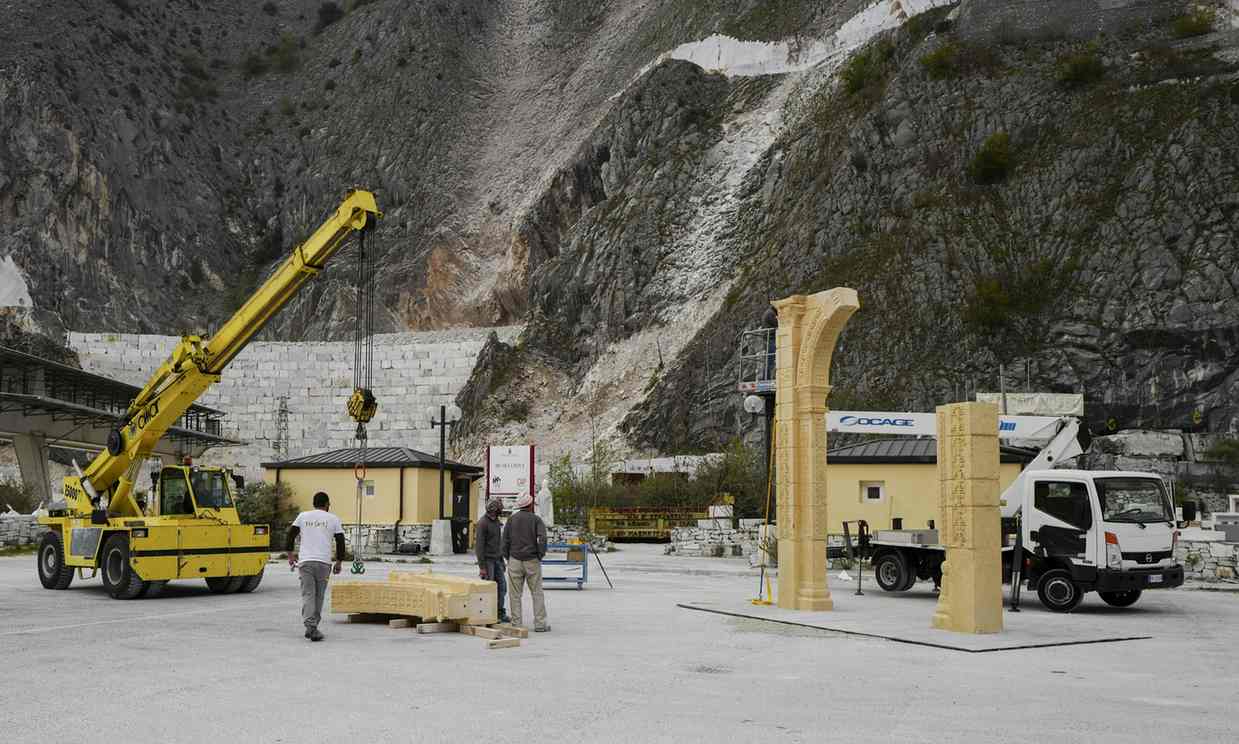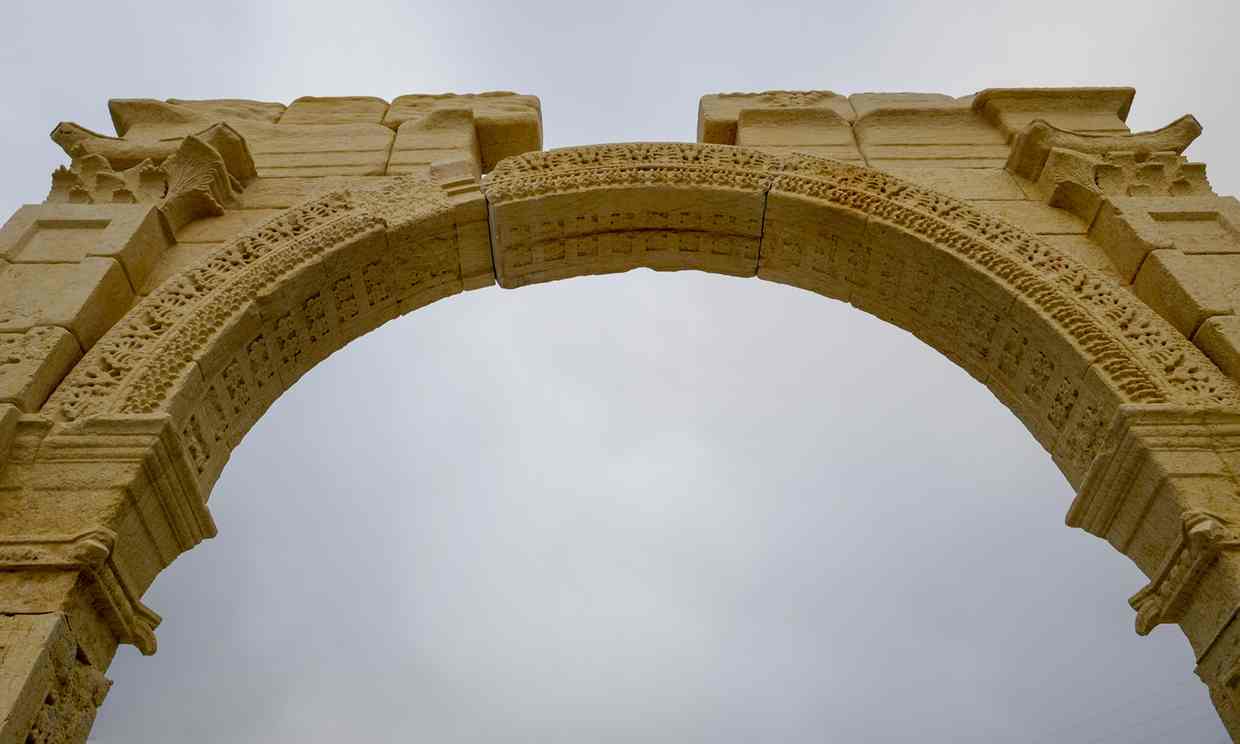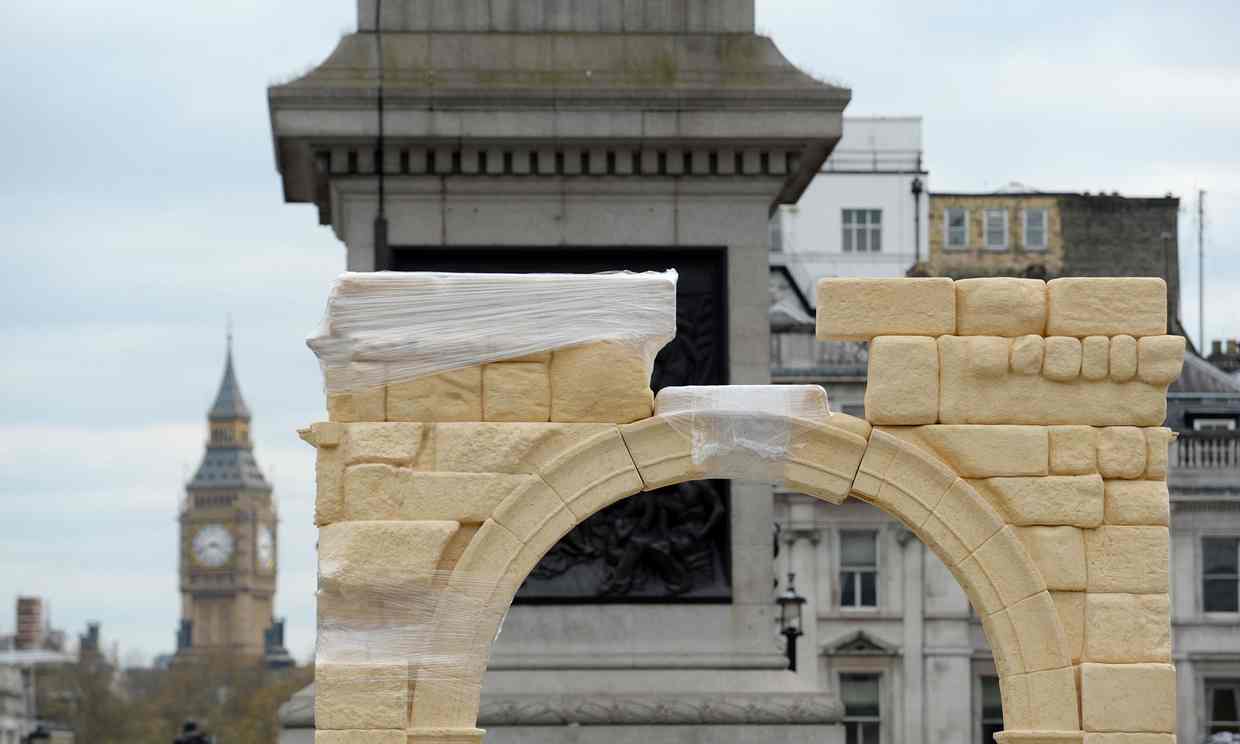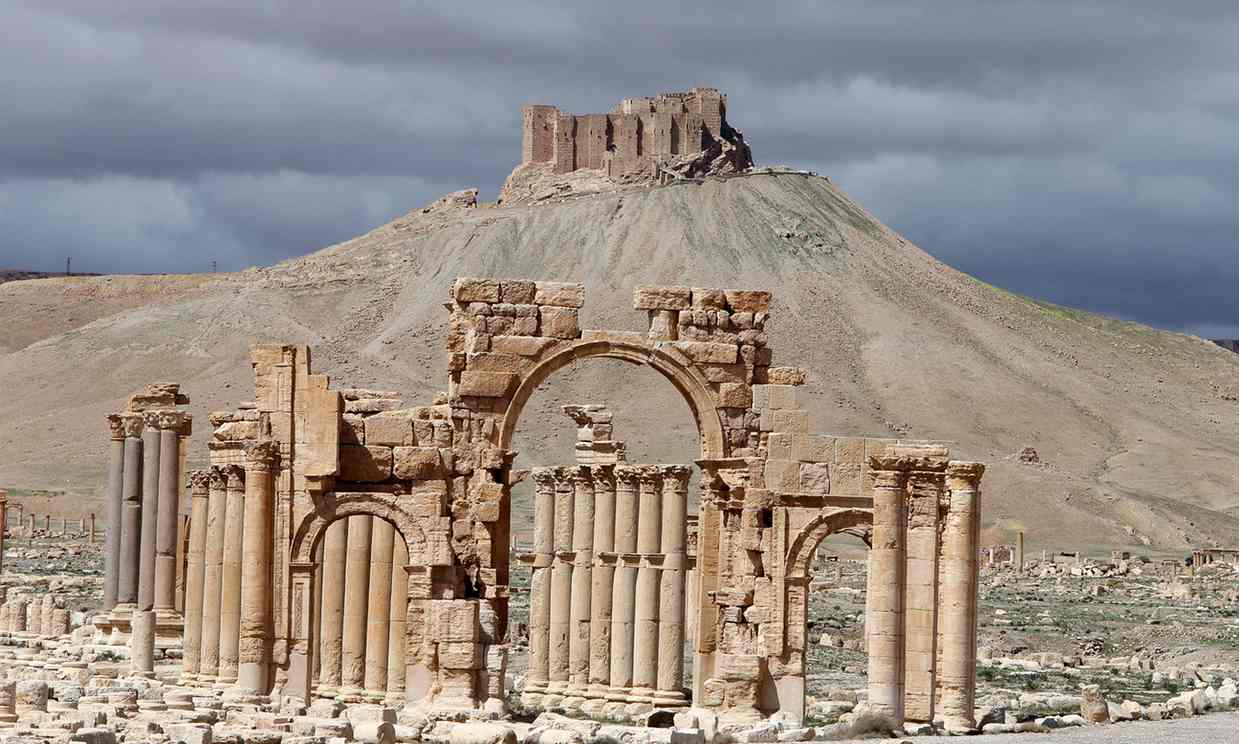Palmyra’s Arch of Triumph recreated in Trafalgar Square
Mark Brown, The Guardian,
April 20, 2016.
Faithful copy of ancient Syrian
monument destroyed by Isis will stand in central London for three
days
A monumental recreation of the
destroyed Arch of Triumph in Palmyra, Syria,
has been unveiled in London’s Trafalgar Square. The 1,800-year-old arch was destroyed
by Islamic State militants last October and the 6-metre (20ft) model,
made in Italy from Egyptian marble, is
intended as an act of defiance: to show that restoration of the
ancient site is possible if the will is there.
 |
| Italian workers in Carrara build the arch from marble. Photograph: Marco Secchi/Getty Images |
It was unveiled by the mayor of
London, Boris
Johnson, who said people were there in solidarity with the people of
Syria and in defiance of the barbarians who destroyed the
origin.
He said: “For 2,000 years Palmyra
stood in a desert, for 2,000 years warriors, generals, conquerors
have come and gone. All of them have brought their languages and
cultures and religions and deities and each succeeding generation has
found something to admire in the inheritance when they arrived.
The temples of
Mesopotamian divinities became Greek temples then Roman temples then
churches and then mosques … and they admired that arch, no one was
so savage, so nihilistic, so pitifully inadequate as to want to
destroy it.”
He congratulated Oxford’s
Institute for Digital Archaeology (IDA), which is behind the
project. “How many digits do Daesh [Isis] deserve? Two digits to
Daesh from London!”
Roger Michel, director of the IDA,
said: “No one would have seriously considered leaving London in
ruins after the blitz.
Monuments – as embodiments of history, religion, art and science –
are significant and complex repositories of cultural narratives.
No
one should consider for one second giving terrorists the power to
delete such objects from our collective cultural record.
When history
is erased in this fashion, it must be promptly and, of course,
thoughtfully restored.”
 |
| Detailed carvings on the arch. Photograph: Marco Secchi/Getty Images |
The arch, weighing 11 tonnes, was
unveiled after a six-hour installation process.
 |
| The reconstruction of the arch nears completion in Trafalgar Square. Photograph: Stefan Rousseau/PA |
Maamoun Abdulkarim, director general
of Syria’s antiquities and museums, said the recreated arch served
as a model for how Palmyra would be restored in what would be a
message of peace. “The life of the Syrian people rests
on their cultural identity, and Palmyra represents one of the most
unique and exceptional cultural heritage sites, not just in Syria but
the whole world. We know that the plans to restore Palmyra to its
former glory are grand, but they can be realised if the task is
treated as a global mission.”
 |
| An archive picture from 2014 showing the Arch of Triumph. Photograph: Joseph Eid/AFP/Getty Images |
The arch is being installed as part of
World Heritage
Week and will stand in London for three days before being put on
public display in Dubai and New York.
The IDA said it had been both an
engineering and digital technology challenge.
Alexy Karenowska, who led the IDA
team, said it would provide people with a chance to celebrate the
rich history of north Africa and the Middle East.
“Without reconstructions, destroyed
sites will, in time, be swallowed by the sands and forgotten, and
with them the history for which they provided the last remaining
visual cues. The IDA is dedicated to resisting that cycle and helping
to preserve the history of a region that defined the artistic,
literary, scientific and architectural traditions of the world.”


